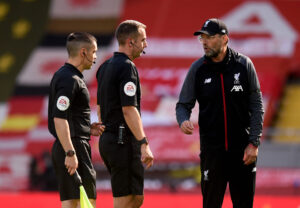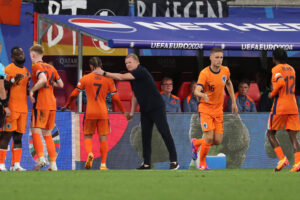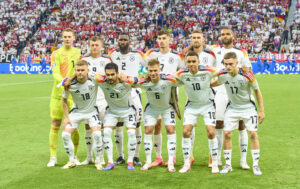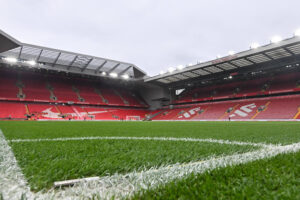In this edition of a series looking at Roman Abramovich’s Russian revolution, his mindset of sacking managers is being focused on. Chelsea’s owner is not shy of making big decisions, often getting rid of high-profile bosses. This can be known as Roman Abramovich’s chopping and changing. But does it bring rewards and is it sustainable?
Roman Abramovich’s Russian Revolution
Chopping and Changing
If you were to look up the words ‘carnage’ or ‘chaos’ in the dictionary, you might well see Roman Abramovich’s actions between 2008-2012. Seven new managers were appointed in just three whole seasons. Still, though, they were winning trophies.
Adapting to English Football
In England, football is very different from other nations. The pace is extreme, the atmosphere is electric and the game is hard to adapt to. So often overseas players come to the Premier League and take half a season or a whole season to properly get used to the conditions, a new team and a passion for football unlike any other country. In some cases, obviously, players never fully live up to the hype. The same pattern follows for managers. However, the same pattern doesn’t follow for Mr Abramovich. He has no time for ‘getting used to England’ or a ‘settling in period’.
This is his weakness but also his strength. If a manager gets off to a flying start, then the attention is on Chelsea, just how Abramovich likes it. Also, the questions regarding a new manager very quickly go away and doubters are silenced. On the other hand, there is a negative from the opposite corner. If there is a slow start, then the whole camp are under pressure, and in England, pressure builds faster than anywhere else. This usually only leads to one outcome.
The Failing Scolari Experiment
When Luiz Felipe Scolari was presented as new Blues gaffer in July 2008, he became the first World Cup-winning manager in England. Expectations were high as usual, but with a man that coached a Brazil team with such top-level players, there was a hope that he could bring glory back to south-west London with a major trophy.
The experiment of going for a well known and successful manager hadn’t worked. Chelsea were falling off the pace and it looked like there would be no league title for the third successive season. Abramovich was getting frustrated with his team. There was no improvement and no manager could bring the quick fix. This was looking like the Russian’s biggest problem. He wasn’t patient. If a manager couldn’t come in and make a rapid start to football in England, they wouldn’t stay for long.
The Hiddink Effect
Few Chelsea managers will go down as being as popular as Guus Hiddink (considering his two impressive interim spells at the helm). The Dutchman replaced Scolari in May 2009 and took them to third in the league and won the FA Cup, coming from behind to beat Everton. But due to his international promises, he wouldn’t start the 2009/10 season in charge. Maybe Abramovich hadn’t counted on Hiddink doing so well and being such a household figure. Chelsea fans were left devastated when he announced he wasn’t staying on. The supporters were heard singing “Guus Hiddink, we want you to stay” at Wembley after the FA Cup triumph, clearly indicating their love for a man only there for four months.
Unfortunate Carlo
Carlo Ancelotti was the man with the honour of succeeding Hiddink. He had been around the football world and won everywhere; a Champions League winner as a player and manager with AC Milan. He took over one of the best man-for-man teams the Premier League has ever seen. Chelsea played scintillating attacking football, scored 103 goals, talisman Didier Drogba finished top scorer with 29, beating Wayne Rooney (26) despite being at the African Cup of Nations.
Despite beating Portsmouth in the FA Cup final that year as well, winning the double in his first season, Abramovich didn’t back Ancelotti in the market. A lack of new signings meant Chelsea struggled through the 2010/11 season, finishing in second but not being anywhere near as fluid as the Italian’s first season. To everyone’s surprise, he was sacked on the final day of the season after a 3-0 loss at Goodison Park. After two years, there was no progress in the Champions League, losing to Mourinho’s eventual winners Inter Milan in the Round of 16, before then losing to runners-up Manchester United in the quarter-finals the year after. It looked like Abramovich was on a quest; one that would only end in European glory. He didn’t care how it happened or who won it, but it had become an obsession.
The Italian had been harshly treated but this particular example was a show of the power Abramovich has at Chelsea. Ancelotti looked to have a squad with the chance of battling Europe’s elite and, with the backing of the board, he would have believed Chelsea could be a place for him to settle and change their recent history of managers. The owner was less forgiving.
The Brink of Collapse
It was a case of deja vu for Chelsea fans as a new manager for the historic 2011/12 season was announced. A young, charming and successful Portuguese manager, previously in charge at Porto had been appointed. This time, though, it wasn’t Jose Mourinho but Andre Villas Boas. Although he hadn’t the same charisma and ore around him that Mourinho brought, he did have a lot of potential. At only 33, Villas Boas took over an ageing squad of players, many of whom had still been there not only in 2008 but some since the first spell of Mourinho.
Drogba was entering his seventh year at the club while Frank Lampard, John Terry and Ashley Cole had been there almost a decade, and Petr Cech was also going into his tenth season with the Blues. There was a feeling that this team needed drastic redevelopment and with the characters in that changing room, it would be impossible to replace. The last two seasons brought zero trophies and influential players such as Michael Ballack and Ricardo Carvalho had been lost. Chelsea were in a decline.
To turn this unstable, sinking ship around would be an almighty task – one that an experienced manager would find extremely hard. Perhaps it was no surprise that Villas Boas struggled. He was troubled with not only pushing through new players but also using the know-how of his older heads. Abramovich’s club was seriously in a position where there could be a power shift, leaving them on the brink of dropping out of the top four.
A poor league season meant Chelsea’s hopes of success, and undoubtedly Villas Boas’ job, was hanging on a knife edge. The most important game of Villas Boas’ career, and his last, was away at Napoli in the Last 16 in a European tie. It had reached breaking point at Stamford Bridge, a poor European campaign would make them unattractive to any potential arrivals. A team that was reliant upon experience wouldn’t be able to hold out for many more seasons without an injection of cash or some form of inspiration.
Interim Inspiration
Matteo’s Magic Short-Lived
Roberto Di Matteo, Chelsea’s interim manager, saved the club, for now. Winning the Champions League not only secured them another season of European football but also gave them the aura of a massive club. It gave the club a shine and a gloss that had never been there before. The signing of 23-year-old sensation Eden Hazard is a prime example of the pull Abramovich brought. The Pensioners are always going to be a good-looking proposition to players looking for a move, but Hazard was different. The whole world was after the Belgian. His deciding tweet “I will be signing for the European Champions” was one that proved how influential this silverware would be. Almost identical to today’s situation, no Champions League, no Hazard.
To the pleasure of all, Di Matteo was made permanent Chelsea manager for the 2012/13 season. The reason behind it was self explanatory, as the Italian said to Abramovich at the final, “I won it, I won it!”. Roberto Di Matteo’s honeymoon didn’t last long, though. He was fired after a poor group stage that season meant the champions were going to be playing Europa League games.
Rafa Benitez
Ex-Liverpool manager Rafa Benitez wouldn’t have topped anyone’s list for the successor to Di Matteo. It was a shock to everyone. After all, the history and rivalry between the clubs, especially from the early Russian years at Chelsea, was rife. However, the decision had logic, taking away the previous of the Spaniard. He was a Champions League winner and known for good football.
Stamford Bridge was divided. Nevertheless, Benitez’s reception at his first game in charge (a 0-0 draw with Fulham at the Bridge) was a disgrace. Chelsea booed Benitez and to say he was ‘greeted’ by hostile banners is being nice. There was no respect for the now-Newcastle boss. Although he didn’t help himself with his fluorescent red tie, there is no reason for the abysmal ‘welcome’. Big Rafa came in at a time when Chelsea were outside the top four and their season was in the balance. He deserved respect for his career achievements alone.
The season was played out with very few disputes from then on. Chelsea performed well, beating eventual winners against Manchester United at Old Trafford (courtesy of a Juan Mata goal), got the biggest win of the season in an 8-0 thrashing of Aston Villa and beat Arsenal home and away.
Although, one flashpoint came following an FA Cup game away at the Riverside against Middlesbrough. A positive 2-0 win for the Blues was marred by damaging comments he made about his future. When asked how he felt about managing a team he wouldn’t be at the year after, Benitez gave a rant, one which is emulated only by his ‘facts’ press conference regarding Sir Alex Ferguson. He was unhappy at the treatment Chelsea had given him, also claiming to not be aware of only being interim manager. If this is indeed true, then it is a huge blunder on Chelsea’s part. The likelihood of this is low, however, meaning Benitez’s words probably only harmed him.
Double European Champions
Perhaps after this outburst, it was no surprise that Benitez didn’t remain in charge for more than his allocated time. That, and the needless hatred Chelsea fans had for him. Maybe fittingly, though, he ended on a high.
Benitez won Chelsea their first Europa League title in a 2-1 win over Benfica at Estadio Da Luz in Lisbon. Branislav Ivanovic’s 90th minute header led the Blues to glory again. They became the first team in history to hold both European trophies. Not only did Chelsea win the final, they had already qualified themselves in third place. For all of the noise around Benitez, he should be remembered only positively by Chelsea.
Main Photo






